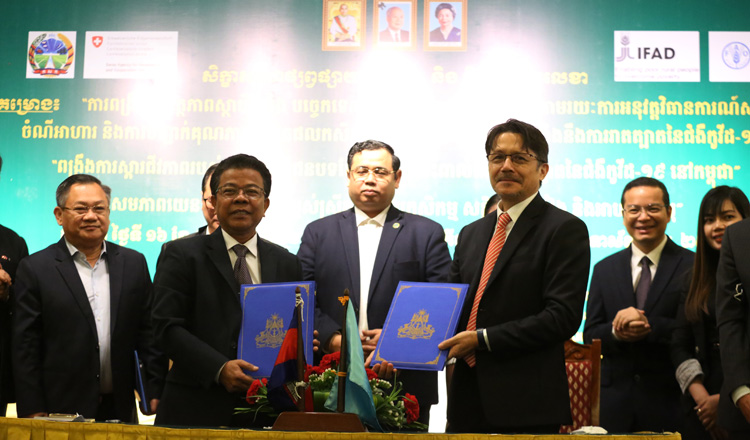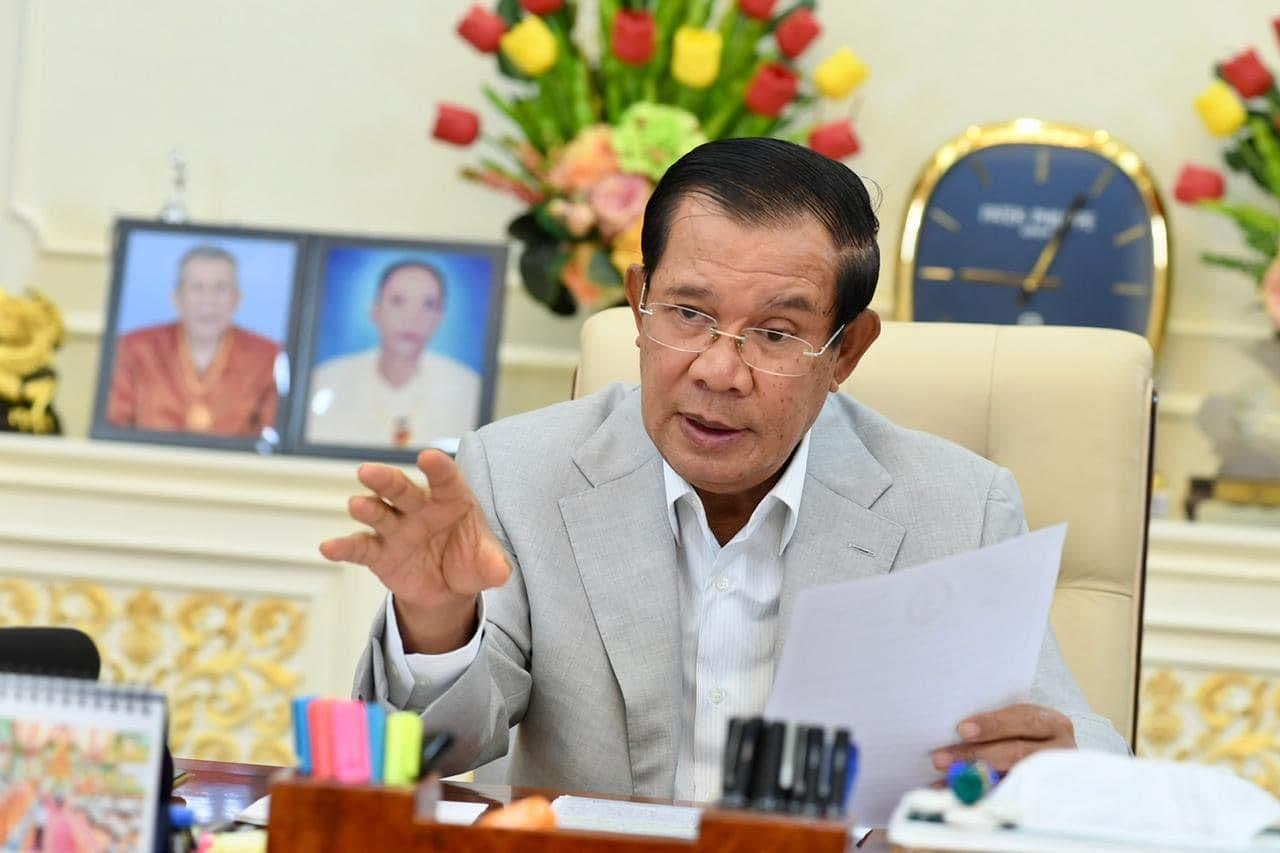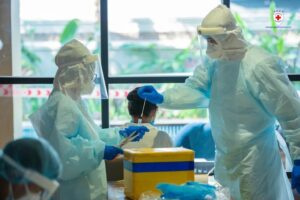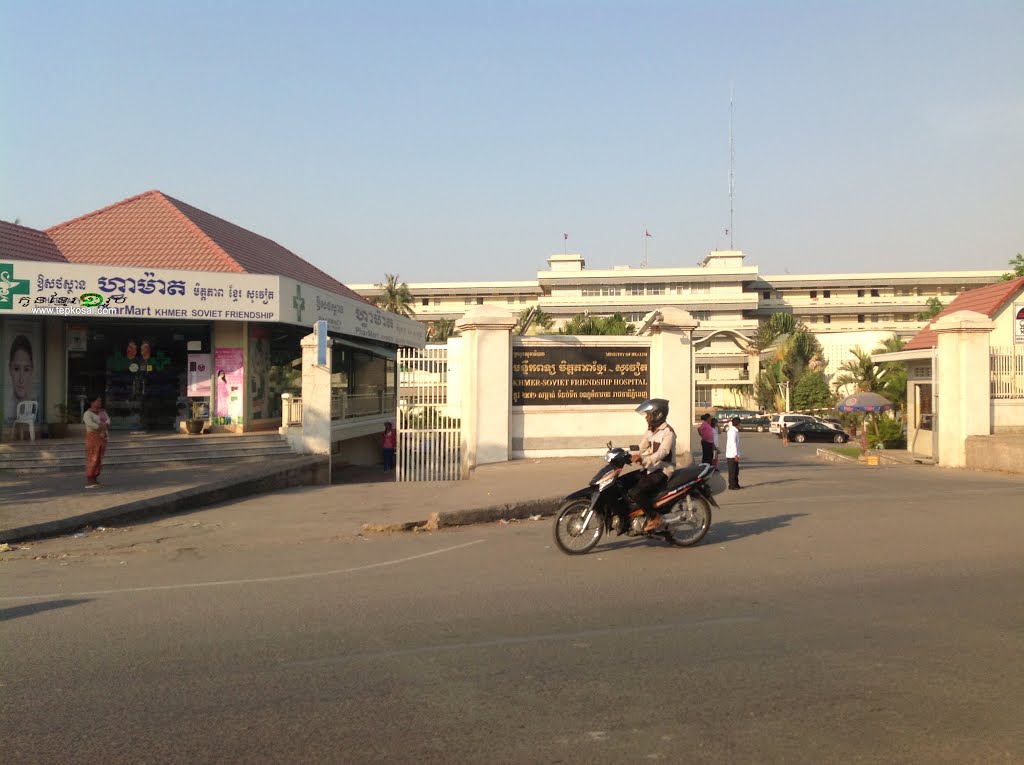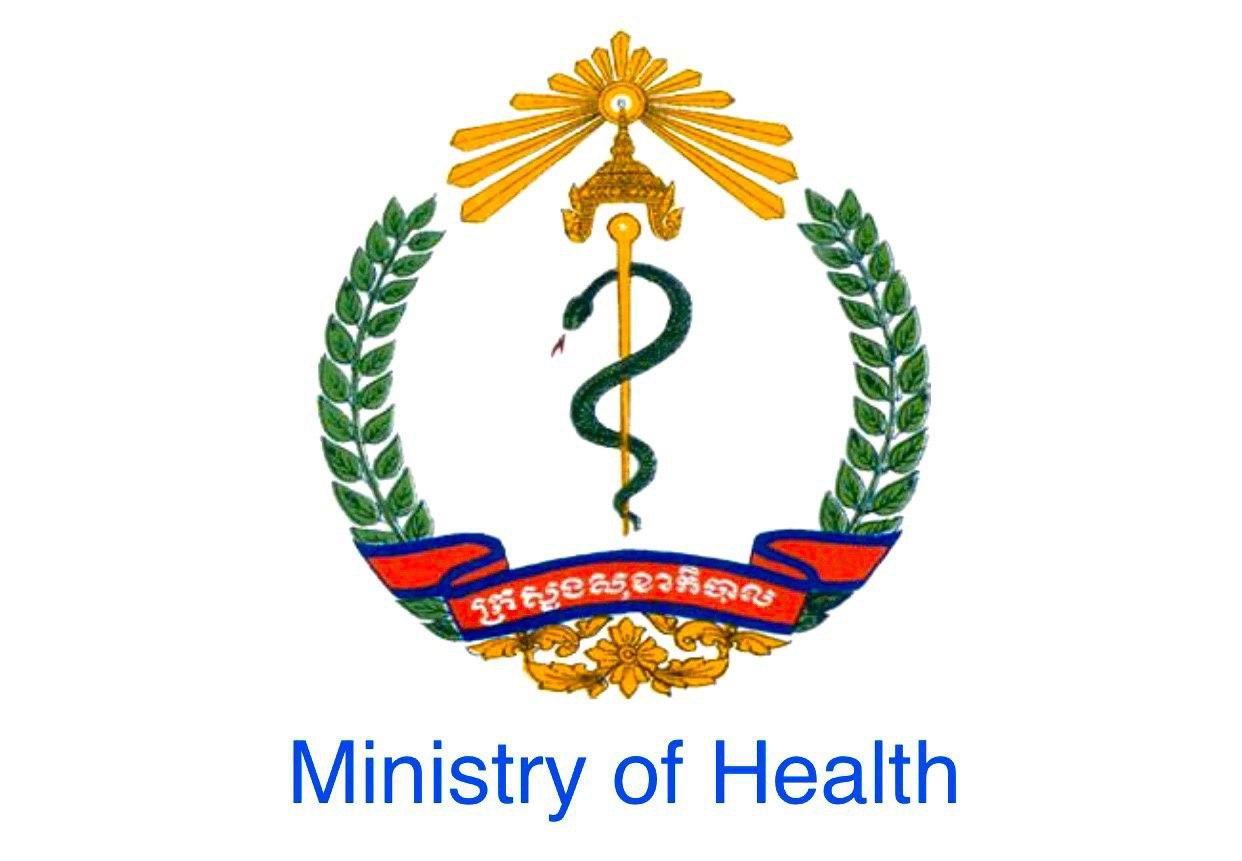Aiding the nation’s most hurt by COVID-19
More details have emerged about an agreement on projects costing $1.5 million to strengthen the recovery of the livelihoods of COVID-19’s most-affected rural communities in Cambodia.
The deal was signed yesterday between the Ministry of Agriculture, Forestry and Fisheries and Food (MAFF) and the Food and Agriculture Organization of the United Nations (FAO).
It includes strengthening institutional and technical capability to produce safe food through the implementation of special measures and certification schemes for agricultural products in Cambodia, combating COVID-19 and boosting gender equality and the empowerment of women in agriculture, food security and nutrition.
The 20-month agreement titled,“Strengthening Livelihood Recovery of COVID-19 Most-Affected Rural Communities Cambodia”, is being funded in Cambodia” is being funded by the Swiss Agency for Development and Cooperation (SDC).
It aims to help groups most in need, including poor and vulnerable households, small-scale farmers, returning migrant workers and unemployed casual workers who have suffered the economic effects of the COVID-19 pandemic. The project agreements signed yesterday directly support 10,000 of the most vulnerable people affected by the pandemic in Siem Reap and Banteay Meanchey province.
Having acknowledged these priority needs, the projects combine a variety of activities, including rehabilitation of basic community infrastructure, the provision of agriculture inputs and assets for production, improved access to financial services and strengthened technical know-how to enhance production, said Markus Buerli, Director of Cooperation of SDC Cambodia.
“Ensuring access to nutritious food and livelihood diversification for the most vulnerable households is key,” he said. “This is the reason that the projects aim to promote the adoption of safe, nutritious and climate-resilient agriculture with the emphasis on short-cycle agricultural production such as vegetables, walking catfish, chicken or other small livestock. I believe this is an effective approach to strengthening short and medium-term productive capacity and agriculture-based livelihoods to boost resilience to this shock,” he added.
The projects will complement existing programmes, including the acceleration of Inclusive Markets for Smallholders (AIMS), the Agriculture Services Programme for Innovation, Resilience and Extension and Sustainable Assets for Agricultural Markets, Business and Trade. All these programmes aim to improve agriculture across all the stages of its value chains in Cambodia.
The COVID-19 pandemic has created short-and long-term social and economic effects of an unprecedented nature and scale. In Cambodia to this day, major impacts are affecting the economy and livelihoods, said Alexandre Huynh, the FAO representative in Cambodia.
According to the joint COVID-19 rapid assessment on agriculture and food security in Cambodia last year, major effects are still impacting the economy and the livelihoods of all, but particularly those of farmers, migrant workers and women, said Huynh.
“It is eroding the resilience of vulnerable groups and there has been growing evidence of negative impacts in nutritional and food security among vulnerable groups due to income loss and micro-loan debts,” he added.
Huynh added Cambodians depend on diverse sources of income, including on-farm activities, waged labour and non-agricultural activities and remittances.
The loss of job opportunities and the decline in remittances, coupled with reduced on-farm income have created income shocks for them.
He added that rural women and girls have been disproportionately affected, both in their productive roles as producers, processors and traders and in their reproductive role and family-care functions. Joint efforts to support vulnerable households to get through this crisis are urgently needed to avoid long lasting consequences for agriculture, food security and nutrition and socio-economic development.
Srey Vuthy, secretary-general of MAFF, said these new projects include technical assistance and expertise to support the projects’ implementers in Siem Reap and Banteay Meanchey provinces and, in some cases, investment projects that aim at assisting household farmers.
Vuthy stated, “Help from the projects, coupled with existing efforts and other collaborations, will allow Cambodia to transform the COVID-19 crisis into an opportunity to increase agriculture productivity, by promoting locally grown, safe and quality agricultural products for household consumption, which will also reduce the need for imports.” Khmer Times

